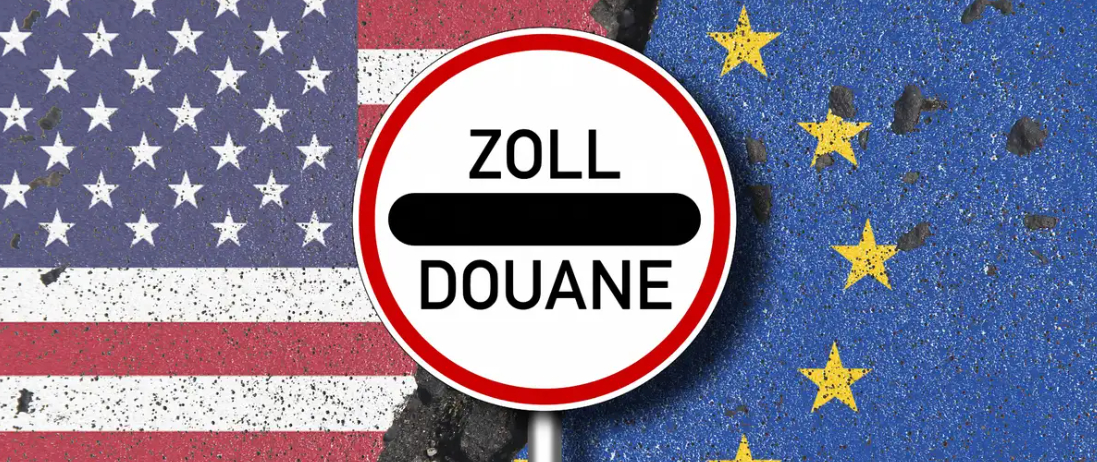
French Prime Minister Bayrou recently denounced the newly reached US-EU trade agreement on social media as "a dark day for Europe," calling it the EU's "surrender" to the US. However, EU countries like Germany and Italy welcomed the agreement, believing it averted a trade war with Washington. These seemingly contradictory positions reflect deep divergences of interest and strategic competition within the EU, exposing the EU's vulnerability and complexity in the global trade landscape.
Under the agreement, the US will impose a 15% base tariff on EU goods, a reduction from the 20% rate previously threatened by Trump, but still three times the EU's current average tariff of 4.8%. European Commission President Ursula von der Leyen called it "the best manageable option," but critics like France point out that the agreement is essentially an "unequal surrender." Key provisions include: a reduction in auto tariffs from 25% to 15%, maintaining high 50% tariffs on steel and aluminum, a 15% tariff for strategic industries such as pharmaceuticals and semiconductors, and zero tariffs on some agricultural products and aircraft parts. Furthermore, the EU pledged to purchase $750 billion in energy products and hundreds of billions in arms from the United States over the next three years, as well as invest $600 billion. Deutsche Bank warned that this move could undermine the EU's long-term growth potential, particularly by diverting capital and production capacity to the United States, which could exacerbate the hollowing out of domestic industries.
France's criticism of the agreement focused on three points: First, "unequal exploitation" at the economic level. French Industry Minister Ferrach pointed out that key industries such as aerospace and spirits are not exempted, and that the 15% tariff will undermine competitiveness. Second, "dependency risk" at the strategic level. France is concerned that excessive purchases of US energy and arms will further strengthen its dependence on the US and weaken the EU's strategic autonomy. Marine Le Pen went even further, calling the agreement a "surrender" to French industry. Third, "sovereignty compromise" at the political level. Bayrou criticized the EU for succumbing to pressure and questioned whether the von der Leyen-Trump agreement truly safeguards Europe's common interests. France called for the activation of an anti-coercion mechanism and demanded that subsequent negotiations rebalance areas such as trade in services.
Germany and Italy have distinctly different approaches. German Chancellor Angela Merz emphasized that the agreement benefits the export-heavy automotive industry, preventing market volatility from an escalating trade war. Italy also values trade stability. While UniCredit noted the agreement's "high asymmetry," it still recognized its value in preventing losses. These countries' stances are rooted in practical economic interests: German auto exports to the US account for 20% of its total production, and Italy's chemicals and agricultural products are heavily reliant on the US market. Within the EU, export-oriented economies are more inclined to make short-term compromises in exchange for certainty, while countries like France, which advocate independent development, find this "costly balancing act" difficult to accept.
The agreement exposes deep divisions within the EU. "Hardliners" like France and Spain advocate for reciprocal retaliation and call for maintaining a single market and industrial sovereignty, while "pragmatists" like Germany and Italy prioritize economic security. A deeper problem lies in the EU's lack of a unified external strategy: while Germany worries about the relocation of production capacity, France worries about the erosion of sovereignty; while southern European countries seek tariff easing, northern European countries worry about excessive concessions. This disagreement weakened the EU's negotiating leverage, forcing von der Leyen to accept the US-led agreement framework. As German media have noted, the prospects for negotiations are "not optimistic."
While the agreement temporarily averted a trade war, the costs are significant. The EU would need to invest heavily in the US, while also bearing the risk of high tariffs and industrial dependence. Deutsche Bank predicts that the $600 billion investment shift could weaken the EU's innovation and defense capabilities, while the long-term impact of 15% tariffs on industries like pharmaceuticals and semiconductors remains to be assessed. Furthermore, Macron's silence and the internal EU debate highlight the leadership divisions and decision-making dilemmas. In the future, the EU may face a difficult balance between "sovereignty" and "economic dependence." Bridging the differences among member states and rebuilding a unified negotiating stance will be key to shedding the label of a "compliant alliance."
This trade agreement dispute is both a microcosm of the internal EU interest game and a profound reflection on the survival strategies of regional economies in the era of globalization. French-style criticism and German-Italian-style compromise together outline the image of a European Union struggling to survive under the pressure of powerful countries. Whether it can rebuild cohesion amid the cracks in the future will depend on whether member states can transcend short-term interests and jointly build a sustainable strategic consensus.

On January 4th local time, Trump warned India that if it does not limit its purchase of Russian oil, the United States will continue to raise tariffs on Indian products. Trump's latest warning sent shockwaves through the Indian financial market in just one day.
On January 4th local time, Trump warned India that if it do…
In October 2025, the US trade deficit narrowed unexpectedly…
According to the British media CoinJournal, recently, due t…
In January 2026, US President Trump once again set his sigh…
Europe is facing a crucial strategic choice: In the face of…
On New Year's Day 2026, BMW China announced a "systematic v…